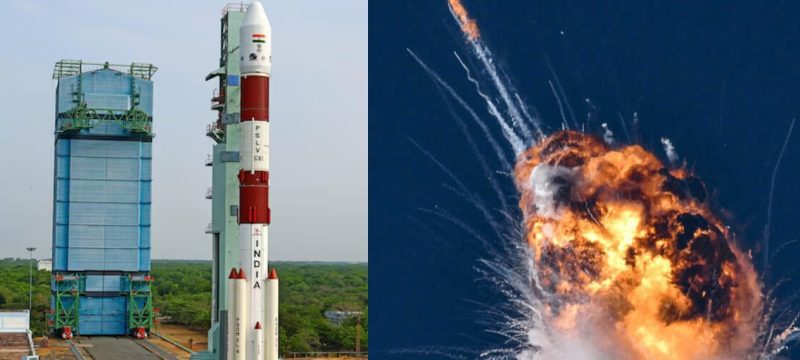The Indian Space Research Organisation (ISRO) experienced a rare failure as its PSLV-C61 mission ended unsuccessfully, marking the end of a long streak of successful launches. The launch, which took place around 6 a.m. from the Satish Dhawan Space Centre in Sriharikota, was meant to place the 1,696-kg EOS-09 Earth observation satellite into a 524-kilometer sun-synchronous orbit. However, an anomaly in the rocket’s third stage approximately 203 seconds into flight caused the vehicle to veer off course.
In response to the malfunction, ISRO activated the flight termination system to ensure public safety. Preliminary data indicates that the solid-fueled third stage underperformed, which resulted in the satellite failing to reach orbit.
Read more: Amazon Deploys First Kuiper Satellites, Challenges SpaceX’s Starlink
The EOS-09, fitted with a C-band Synthetic Aperture Radar (SAR), was designed for critical functions including border surveillance, national security, and disaster response under all weather conditions.
ISRO Chairman V. Narayanan acknowledged the failure during a live broadcast and announced the creation of a failure analysis committee to determine the root cause. Investigations are underway to examine issues related to fuel delivery, nozzle function, and the structural components of the rocket.
This marks only the third full mission failure in the history of the PSLV program, which has completed 63 launches to date. It is also the first failure since 2017 and occurred during ISRO’s 101st space mission, breaking a chain of 58 consecutive PSLV successes.
The setback is particularly significant as this launch was expected to be a key step in India’s ambitious plan to deploy a 52-satellite SAR network for advanced surveillance and imaging capabilities.
Despite the failure, ISRO confirmed that the rocket debris would fall in designated zones, posing no threat to life or property. The agency remains optimistic, with four more PSLV missions scheduled for 2025, and is known for quickly recovering from such setbacks to resume its space ambitions.









